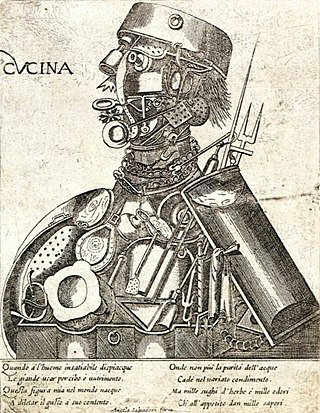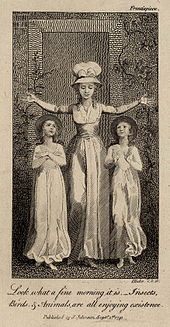
Cyberspace is an interconnected digital environment. It is a type of virtual world popularized with the rise of the Internet. The term entered popular culture from science fiction and the arts but is now used by technology strategists, security professionals, governments, military and industry leaders and entrepreneurs to describe the domain of the global technology environment, commonly defined as standing for the global network of interdependent information technology infrastructures, telecommunications networks and computer processing systems. Others consider cyberspace to be just a notional environment in which communication over computer networks occurs. The word became popular in the 1990s when the use of the Internet, networking, and digital communication were all growing dramatically; the term cyberspace was able to represent the many new ideas and phenomena that were emerging. As a social experience, individuals can interact, exchange ideas, share information, provide social support, conduct business, direct actions, create artistic media, play games, engage in political discussion, and so on, using this global network. Cyberspace users are sometimes referred to as cybernauts.
A sysop is an administrator of a multi-user computer system, such as a bulletin board system (BBS) or an online service virtual community. The phrase may also be used to refer to administrators of other Internet-based network services. Sysops typically do not earn money, but donate their activity to the community.
In computer technology and telecommunications, online indicates a state of connectivity and offline indicates a disconnected state. In modern terminology, this usually refers to an Internet connection, but could refer to any piece of equipment or functional unit that is connected to a larger system. Being online means that the equipment or subsystem is connected, or that it is ready for use.
An internet relationship is a relationship between people who have met online, and in many cases know each other only via the Internet. Online relationships are similar in many ways to pen pal relationships. This relationship can be romantic, platonic, or even based on business affairs. An internet relationship is generally sustained for a certain amount of time before being titled a relationship, just as in-person relationships. The major difference here is that an internet relationship is sustained via computer or online service, and the individuals in the relationship may or may not ever meet each other in person. Otherwise, the term is quite broad and can include relationships based upon text, video, audio, or even virtual character. This relationship can be between people in different regions, different countries, different sides of the world, or even people who reside in the same area but do not communicate in person.
Computer addiction is a form of behavioral addiction that can be described as the excessive or compulsive use of the computer, which persists despite serious negative consequences for personal, social, or occupational function. Another clear conceptualization is made by Block, who stated that "Conceptually, the diagnosis is a compulsive-impulsive spectrum disorder that involves online and/or offline computer usage and consists of at least three subtypes: excessive gaming, sexual preoccupations, and e-mail/text messaging". Computer addiction is not currently included in the Diagnostic and Statistical Manual of Mental Disorders (DSM-5) as an official disorder. The concept of computer addiction is broadly divided into two types, namely offline computer addiction, and online computer addiction. Offline computer addiction is normally used when speaking about excessive gaming behavior, which can be practiced both offline and online. Online computer addiction, also known as Internet addiction, gets more attention in general from scientific research than offline computer addiction, mainly because most cases of computer addiction are related to the excessive use of the Internet.

Online chat is any kind of communication over the Internet that offers a real-time transmission of text messages from sender to receiver. Chat messages are generally short in order to enable other participants to respond quickly. Thereby, a feeling similar to a spoken conversation is created, which distinguishes chatting from other text-based online communication forms such as Internet forums and email. Online chat may address point-to-point communications as well as multicast communications from one sender to many receivers and voice and video chat, or may be a feature of a web conferencing service.
A virtual community is a social work of individuals who connect through specific social media, potentially crossing geographical and political boundaries in order to pursue mutual interests or goals. Some of the most pervasive virtual communities are online communities operating under social networking services.
Hyperreality is a concept in post-structuralism that refers to the process of the evolution of notions of reality, leading to a cultural state of confusion between signs and symbols invented to stand in for reality, and direct perceptions of consensus reality. Hyperreality is seen as a condition in which, because of the compression of perceptions of reality in culture and media, what is generally regarded as real and what is understood as fiction are seamlessly blended together in experiences so that there is no longer any clear distinction between where one ends and the other begins.

Internet culture is a quasi-underground culture developed and maintained among frequent and active users of the Internet who primarily communicate with one another online as members of online communities; that is, a culture whose influence is "mediated by computer screens" and information communication technology, specifically the Internet.

In computing, an avatar is a graphical representation of a user, the user's character, or persona. Avatars can be two-dimensional icons in Internet forums and other online communities, where they are also known as profile pictures, userpics, or formerly picons. Alternatively, an avatar can take the form of a three-dimensional model, as used in online worlds and video games, or an imaginary character with no graphical appearance, as in text-based games or worlds such as MUDs.
"The Man" is a slang phrase used in the United States to refer to figures of authority, including members of the government. Though typically used as a derogatory connotation, the phrase may also be used as a term of respect or praise. The phrase "the Man is keeping me down" is commonly used to describe oppression, while the phrase "stick it to the Man" encourages civil resistance to authority figures.
"A Rape in Cyberspace, or How an Evil Clown, a Haitian Trickster Spirit, Two Wizards, and a Cast of Dozens Turned a Database into a Society" is an article written by freelance journalist Julian Dibbell and first published in The Village Voice in 1993. The article was later included in Dibbell's book My Tiny Life on his LambdaMOO experiences.
Internet identity (IID), also online identity, online personality, online persona or internet persona, is a social identity that an Internet user establishes in online communities and websites. It may also be an actively constructed presentation of oneself. Although some people choose to use their real names online, some Internet users prefer to be anonymous, identifying themselves by means of pseudonyms, which reveal varying amounts of personally identifiable information. An online identity may even be determined by a user's relationship to a certain social group they are a part of online. Some can be deceptive about their identity.

Dystopia is a team-based, objective-driven, first-person shooter video game, developed as a total conversion modification on the Valve's proprietary Source engine. It is based on the cyberpunk literary and aesthetic genre; it is somewhat based on popular role-playing game Shadowrun, created by an amateur development team and released to the public for free. Its first playable build was released on September 9, 2005, after a year of planning and nine months of development. The first full version of Dystopia, Version 1, was released after 3 years of development on February 25, 2007.
Online ethnography is an online research method that adapts ethnographic methods to the study of the communities and cultures created through computer-mediated social interaction. As modifications of the term ethnography, cyber-ethnography, online ethnography and virtual ethnography designate particular variations regarding the conduct of online fieldwork that adapts ethnographic methodology. There is no canonical approach to cyber-ethnography that prescribes how ethnography is adapted to the online setting. Instead individual researchers are left to specify their own adaptations. Netnography is another form of online ethnography or cyber-ethnography with more specific sets of guidelines and rules, and a common multidisciplinary base of literature and scholars. This article is not about a particular neologism, but the general application of ethnographic methods to online fieldwork as practiced by anthropologists, sociologists, and other scholars.
The online disinhibition effect refers to the lack of restraint one feels when communicating online in comparison to communicating in-person. People tend to feel safer saying things online which they would not say in real life because they have the ability to remain completely anonymous and invisible when on particular websites, and as a result, free from potential consequences. Apart from anonymity, other factors such as asynchronous communication, empathy deficit, or individual personality and cultural factors also contribute to online disinhibition. The manifestations of such an effect could be in both positive and negative directions; thus, online disinhibition could be classified as either benign disinhibition or toxic disinhibition.
Identity tourism may refer to the act of assuming a racial, ethnic, socioeconomic, sexual or gender identity for recreational purposes, or the construction of cultural identities and re-examination of one's ethnic and cultural heritage from what tourism offers its patrons.
Cyberformance refers to live theatrical performances in which remote participants are enabled to work together in real time through the medium of the internet, employing technologies such as chat applications or purpose-built, multiuser, real-time collaborative software. Cyberformance is also known as online performance, networked performance, telematic performance, and digital theatre; there is as yet no consensus on which term should be preferred, but cyberformance has the advantage of compactness. For example, it is commonly employed by users of the UpStage platform to designate a special type of Performance art activity taking place in a cyber-artistic environment.

The sociology of the Internet involves the application of sociological or social psychological theory and method to the Internet as a source of information and communication. The overlapping field of digital sociology focuses on understanding the use of digital media as part of everyday life, and how these various technologies contribute to patterns of human behavior, social relationships, and concepts of the self. Sociologists are concerned with the social implications of the technology; new social networks, virtual communities and ways of interaction that have arisen, as well as issues related to cyber crime.
Technoself studies, commonly referred to as TSS, is an emerging, interdisciplinary domain of scholarly research dealing with all aspects of human identity in a technological society focusing on the changing nature of relationships between the human and technology. As new and constantly changing experiences of human identity emerge due to constant technological change, technoself studies seeks to map and analyze these mutually influential developments with a focus on identity, rather than technical developments. Therefore, the self is a key concept of TSS. The term "technoself", advanced by Luppicini (2013), broadly denotes evolving human identity as a result of the adoption of new technology, while avoiding ideological or philosophical biases inherent in other related terms including cyborg, posthuman, transhuman, techno-human, beman, digital identity, avatar, and homotechnicus though Luppicini acknowledges that these categories "capture important aspects of human identity". Technoself is further elaborated and explored in Luppicini's "Handbook of Research on Technoself: Identity in a Technological Environment".






